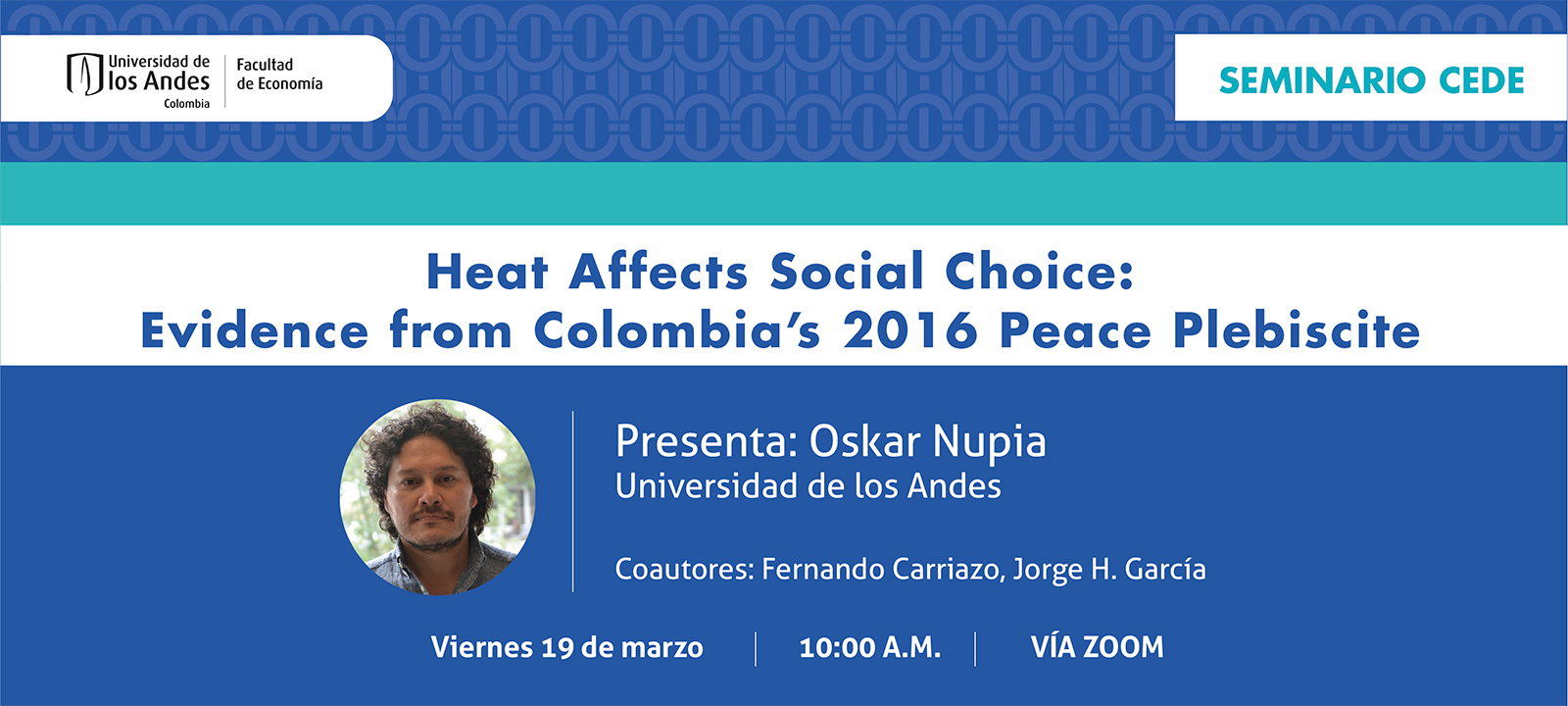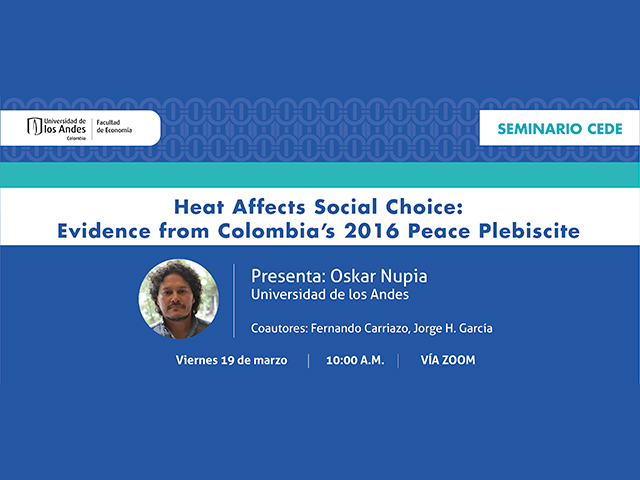Seminario CEDE - Oskar Nupia

It is a well-established fact that heat exacerbates irritability and anger, which in turns affects human behavior. Using municipality-level data for the 2016 Plebiscite in Colombia that sought to ratify the Peace Agreement between the state and the country’s main guerilla group, we present evidence that heat shocks affected voters’ behavior. We find that those municipalities exposed to a heat shock during plebiscite day had a higher vote share against the Agreement. To understand the mechanisms behind this result, we exploit municipality-level information on both the political context and the exposition to the most divisive elements of the Agreement. The impact of heat on the plebiscite results was mediated by high exposure to violence, low support for the main opposition party of the Peace Agreement (discontent with the ruling government), and the presence of coca crops.

